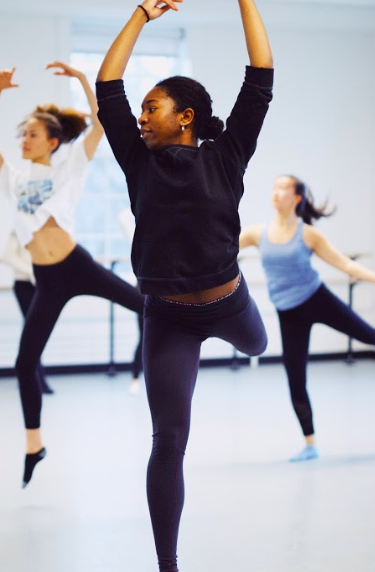Today, music permeates every aspect of our culture. Whether it is in the songs we sing in the shower or the hidden dance parties we have in our rooms at night, our love for music comes in various forms and musical inspiration strikes at various moments in our lives. It was this shared love for music that transformed attitudes during cultural turning points, including the Civil Rights Era.
Recently, we gathered to celebrate MLK Day at Deerfield, a day to honor a man who dedicated his life to fighting for justice. But what was his relation to music? Martin Luther King Jr. admired the beauty of songs, which led to a close friendship with Mahalia Jackson, an influential black singer of the Civil Rights Era.
On New Year’s Eve in 1968, Dr. King gathered his friends and sang old gospel songs with them, including his personal favorite, “Take my Hand, Precious Lord.” Given that Dr. King treasured the power of music, the Deerfield community was careful to chose influential music to add to the cultural experiences of MLK Day.

This year, the Deerfield Chorus sang “Lift Every Voice and Sing,” a song which is widely known as the Black National Anthem. The song was first composed by James Weldon Johnson as a poem in 1900 and later adapted to music by his brother, J. Rosamund Johnson.
The first performance of this piece was in 1900, when it was sung by 500 school children in a celebration of the anniversary of President Lincoln’s birthday.
Choruses who have performed this piece in recent years sing it in an attempt to remember the goals and dreams of Dr. King and the Civil Rights Movement.
According to the Director of Inclusion and Community Life Marjorie Young, “The words are powerful. They remind us of the struggles related to slavery, Jim Crow, and the Civil Rights movement. [But] at the same time, the words fill us with hope.”
The Director of the Deerfield Choral Program Thomas Pousont said, “The music is exactly what MLK Jr. would have wanted. The collection of voices singing unabashedly of the freedom that he was confident of.”
Hearing people throughout the community share a common love for “Lift Every Voice and Sing” is a true testament to the beautiful legacy this song has left behind. Destynee St. Agathe-Faure ‘22 commented on King’s direct relation to the significance of this song.
“MLK Jr. was a clergyman, and the gospel that he spoke of coupled with the religious fervor of his mission directly speaks to the message of ‘Lift Every Voice and Sing,” Agathe-Faure said. “[It] is a testament to the power of the community voice in reclaiming justice, even today.”
Though it was written over six decades later, the second song of the arts section of the MLK Day performance, “A Change is Gonna Come” by Sam Cooke, is equally important and meaningful.
Sam Cooke was the singer and songwriter who wrote the song in 1963 after a tragic encounter in Shreveport, Louisiana, during which he was imprisoned after trying to check into a motel.
Sitting in jail, he wrote out his vision for the future in a heartbreaking yet hopeful song that the Advanced Dance Ensemble has brought to life through their performance during the all-school meeting for MLK Day.
For dancer Lara Akande ‘20, another one of the student coordinators, the part of the song that most resonated with her was the lyrics, “It’s been too hard living, but I’m afraid to die.”
The dance performance also reflects the resounding importance of that line, both in our history and society.
As Akande said, “This song perfectly encapsulates the legacy of MLK Jr., a humble clergyman who believed in the strength of people and the unwavering hope that was sure to bring about a change.”

